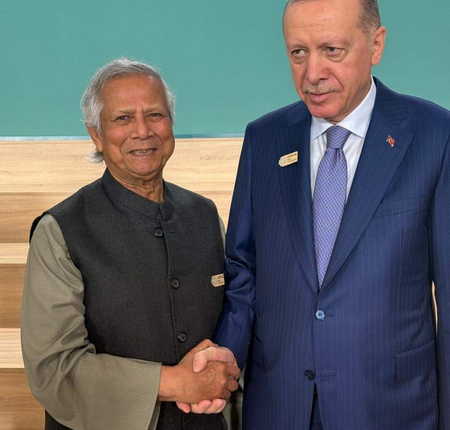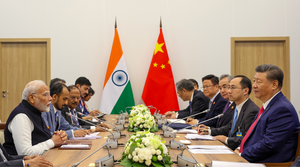Dhaka – The removal of former Bangladesh Prime Minister Sheikh Hasina in August 2024 has opened space for Turkey under President Recep Tayyip Erdogan to expand its influence in the country, blending trade, defence cooperation and Islamist outreach.
A growing alliance between Turkey, Pakistan’s ISI and Bangladesh’s Jamaat-e-Islami (JeI) is emerging, with the objective of undermining India by pushing radical ideologies and facilitating arms and funds into the region. The nexus has gained momentum after Turkey backed Pakistan during India’s Operation Sindoor following the April 22 Pahalgam terror attack.
In June, Bangladesh’s Supreme Court restored JeI’s registration, reversing the Awami League’s earlier crackdown. On July 26, Yasin Aktay, a former advisor to Erdogan, visited JeI chief Shafiqur Rahman in Dhaka, with intelligence sources alleging that Turkey’s MIT funded the renovation of JeI’s headquarters.
Defence collaboration between Dhaka and Ankara has also intensified. A Turkish delegation led by Haluk Gorgun met Bangladesh’s Army, Navy and Air Force chiefs in Dhaka on July 8-9 to discuss joint projects, including two proposed defence industry complexes in Chittagong and Narayanganj. Bangladesh is exploring concessional financing to acquire Bayraktar TB-2 drones, TRG-300 rockets, MRAP vehicles and other advanced systems.
Bangladesh officials, including BIDA Chairman Chowdhury Ashik Mahmud Bin Harun, visited Turkey earlier this year for talks on joint production of artillery shells, rifles and machine guns. Bangladesh’s Air Force and Navy chiefs also attended the International Defence Industry Fair in Istanbul in late July.
Turkey has already become a key supplier of armoured vehicles, missiles and drones to Bangladesh. Analysts warn that Turkish and Pakistani agencies may exploit political instability ahead of next year’s elections to tilt Dhaka’s policies, strengthen Islamist factions and reshape South Asian geopolitics in their favour.










